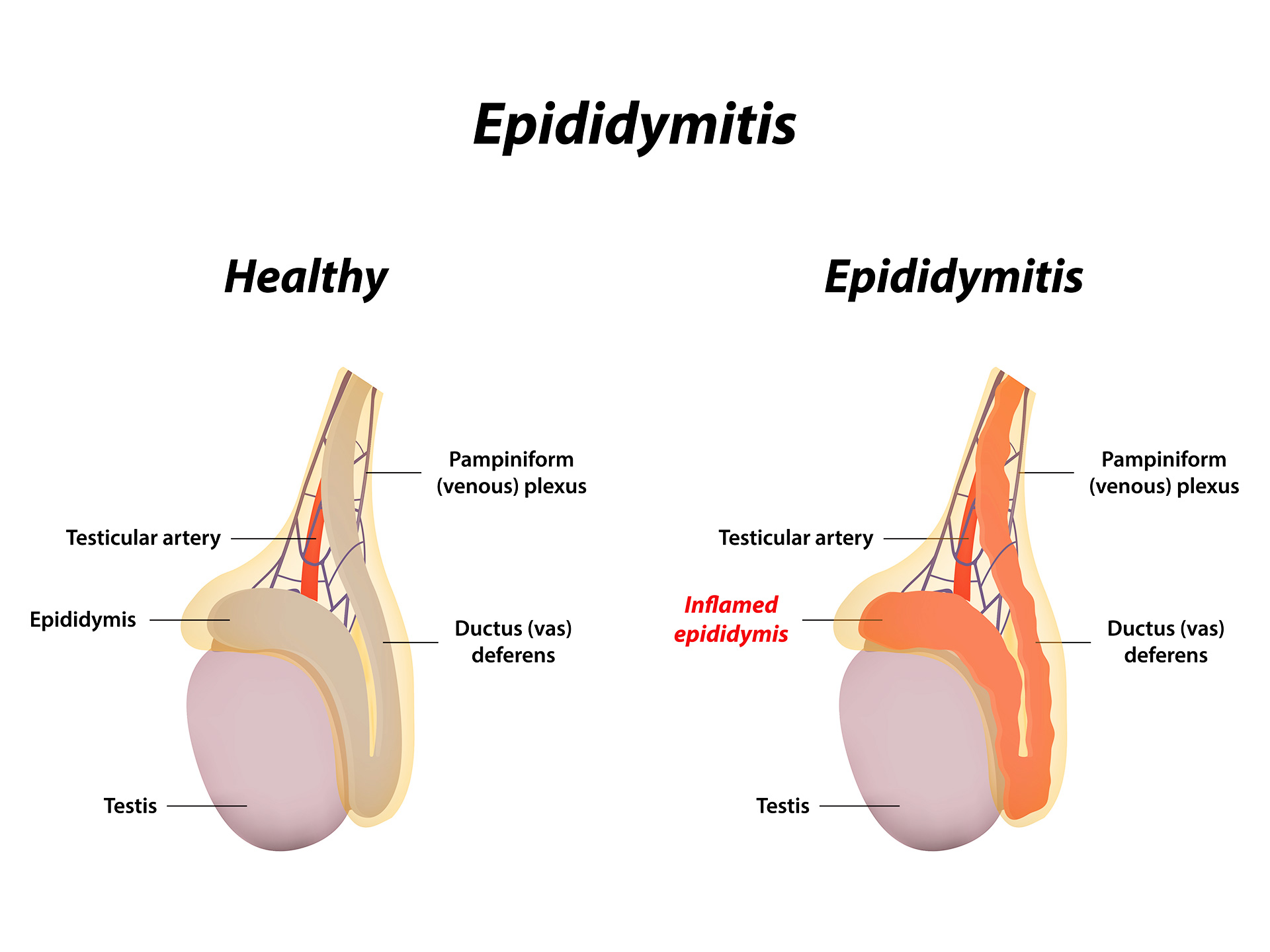Causes and risk factors
Epididymitis common infection in young men. Sexually transmitted disease [STD] is commonest cause of Epididymitis especially gonorrhoea and Chlamydia. Having history of recurrent UTI, history of TB, with congenital abnormality in genital tract, being uncircumcised, having Genitourinary surgeries , using urinary catheter, lifting heavy weights, having medicines for heart disease have risk of causing Epididymitis. It can be associated with patient with certain sexual behaviours like having multiple sex partners, unprotected sexual intercourse with partner having STD can lead to the disease.
Clinical presentation
Painful swelling and tenderness of the testes and scrotum, enlargement of inguinal lymph nodes, dysuria, urgent and frequent urination, heamaturia, hematospermia [blood in semen] are major symptoms of Epididymitis. Fever, nausea and vomiting may follow. Painful sexual intercourse may be experienced.
Investigation
Medical history by the patient and Clinical examination by the doctor helps in diagnosis. Ultrasound with colour Doppler of the scrotum help in diagnosing the disease. Urine test, routine blood tests, tests for screening of STD help in further evaluation. Imaging, can be done to rule out torsion of testes.
Treatment
Patient is advised rest, scrotal support, cold packs, athletic cup, abstinence from sexual intercourse. NSAIDS, analgesics, antibiotics help in reducing the inflammation.
Other Modes of treatment
The other modes of treatment can also be effective in treating Epididymitis. Homoeopathy is a science which deals with individualization considers a person in a holistic way. This science can be helpful in combating the symptoms. Similarly the ayurvedic system of medicine which uses herbal medicines and synthetic derivates are also found to be effective in treating Epididymitis.






























